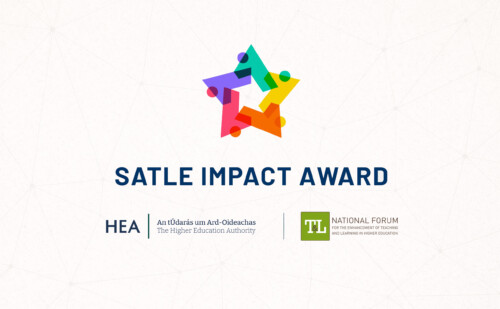
13 January, 2026

By Maura O'Shea
Posted: 9 October, 2020
Two major gender equality initiatives – aimed at addressing gender under-representation in senior leadership roles, and supporting the achievement of equality and diversity goals in higher education institutions – have been launched today by the Higher Education Authority (HEA) and the Minister for Further and Higher Education, Research, Innovation and Science, Simon Harris, T.D.
A call for applications under the Senior Academic Leadership Initiative – which promotes gender-targeted leadership posts in higher education institutions (HEIs) – is now live following approval by the Minister earlier this week.
The Call which is being issued by the HEA will be for 15 senior leadership posts in HEIs nationally. This is on top of the 20 posts that were approved in January 2020.
In addition, the HEA has announced that it will provide €300,000 in funding annually to the Gender Equality Enhancement Fund, which will support organisational and cultural change initiatives nationally.
This Fund will encourage innovative approaches to addressing gender inequality across HEIs and support cross-sectoral collaboration as a means to achieving national transformation.
This is of particular importance due to the impact of the Covid-19 pandemic on female academic staff – many of whom disproportionately carry the increased burden of caring responsibilities, potentially further delaying their career progression.
The Senior Academic Leadership Initiative (SALI) aims to help achieve equality of outcome in the higher education sector, and 45 senior academic leadership posts will be awarded to HEIs over three years to assist in accelerating gender balance at senior levels. The key objective of this initiative is principally to attract outstanding female applicants both from within the sector currently and internationally.
In 428 years, there has only been one female president of an Irish university (appointed in 2020). Importantly, the Senior Academic Leadership Initiative will assist in increasing the number of women involved in the decision-making processes in the higher education institutions.
Minister Harris stated “We have excellent leadership in our third-level institutions, but a systemic imbalance in female representation at the highest levels in our universities. We must ensure that our students are met with balanced leadership, so that they will carry forward, when they graduate, the principles of equality, diversity and inclusion. We need change so that it better reflects the values of modern Ireland and our commitment to gender equality, and the SALI Initiative will help achieve that”.
Commenting on the launch of these initiatives, HEA CEO, Dr Alan Wall said:
“Our HEIs have made considerable progress since the publication of the HEA Review of Gender Equality in 2016. The announcement of these calls sends a clear message that this issue has not been fixed and the HEA’s commitment remains as strong as ever in this area.”
These initiatives are part of a broader framework that encompasses a variety of initiatives and reporting structures that aim to ensure that Irish HEIs are progressing towards gender equality.
The HEA Centre of Excellence for Gender Equality was established in June 2019 to ensure sustainable acceleration towards gender equality in Irish HEIs by providing centralised support for the institutions, sharing of good practice, and funding for innovative organisational and cultural change initiatives nationally.
Dr Ross Woods of the Centre of Excellent for Gender Equality in the HEA said the success of the first SALI call is demonstrated by the high calibre of applicants and appointees to these posts. “The appointment of such outstanding academics to senior leadership positions in our institutions can only be welcomed and, along with the HEA’s other gender equality work, will help to remove the systemic barriers to progression that are faced by women in higher education,” he said. “In 2020, the impact of the SALI will see an extra 2% increase in female representation at senior decision-making levels on top of the 1% increase we are now seeing year on year.”
Initiatives like the SALI will not transform institutional culture on their own, and the launch of the Gender Equality Enhancement Fund is timely in this regard, especially given the gendered impacts of the Covid-19 pandemic which have emerged in recent months.
The calls for applications to these new positions under the SALI open today (October 9, 2020), with the outcomes expected in the new year.
ENDS
For further information, contact Catherine Halloran at HEA Communications